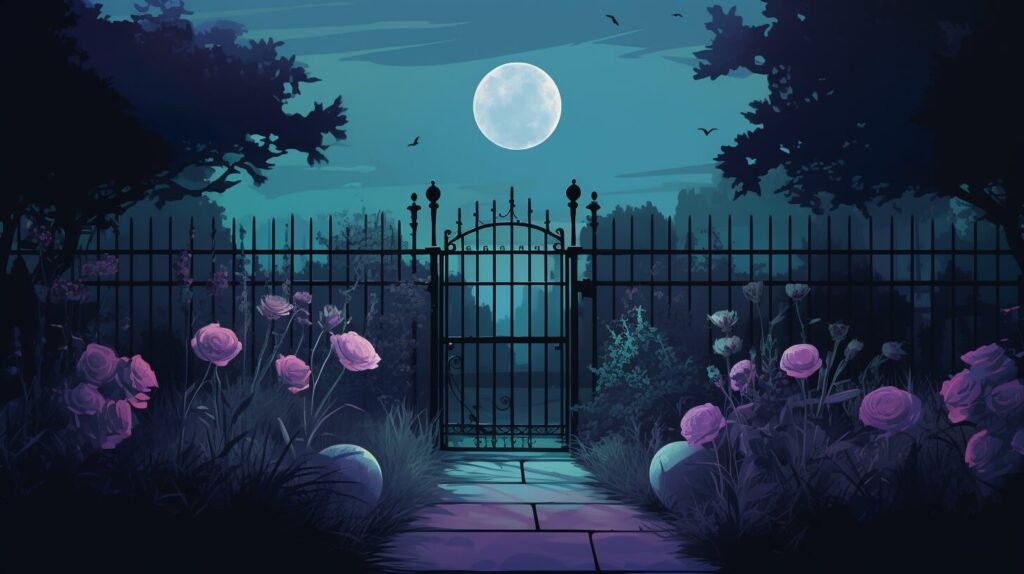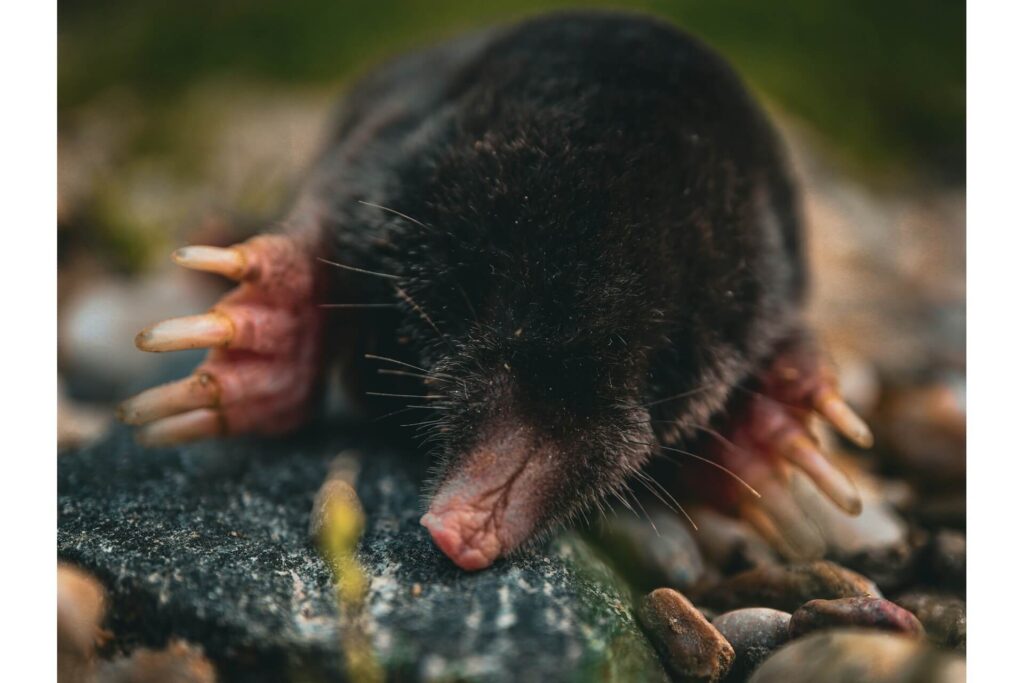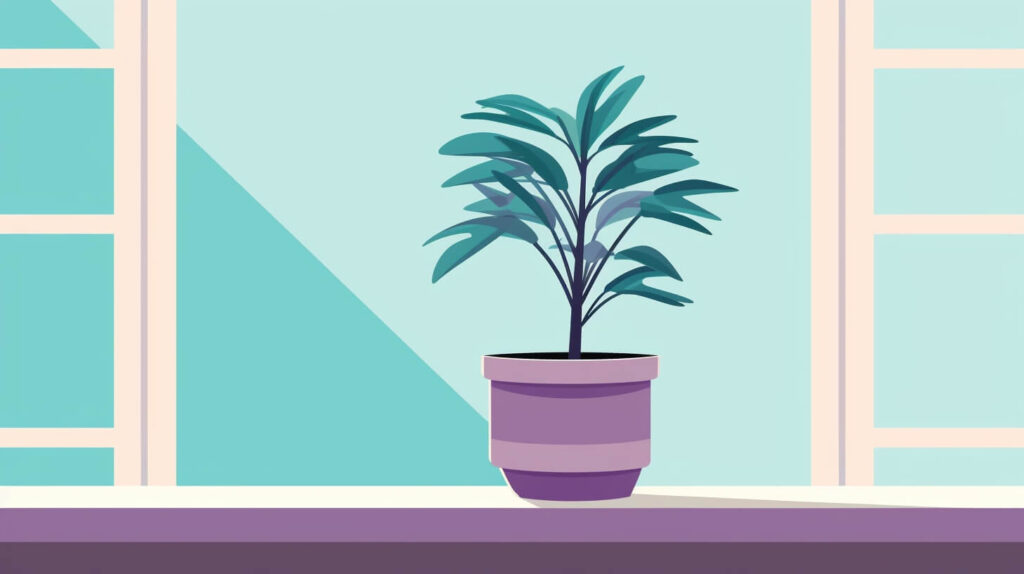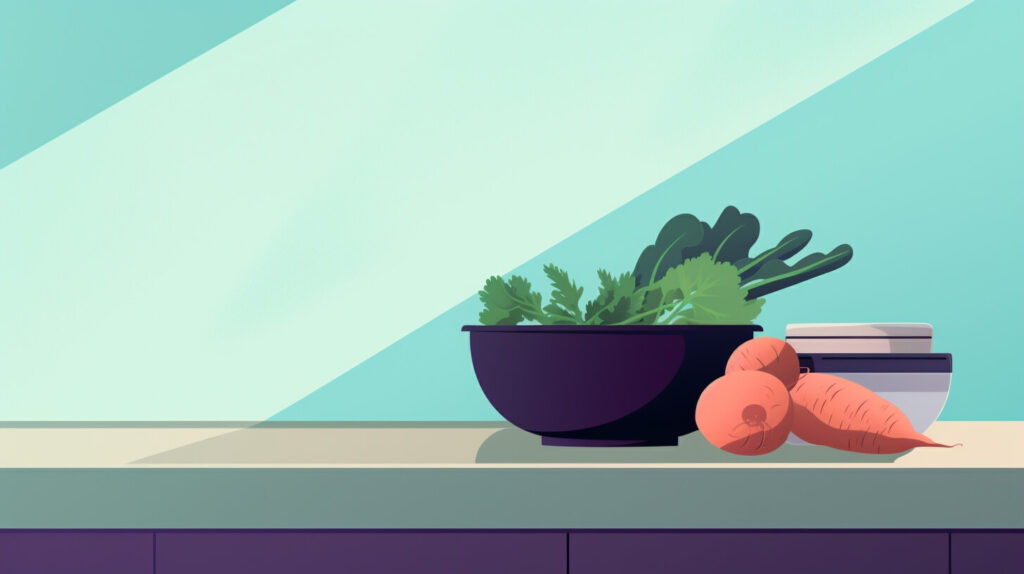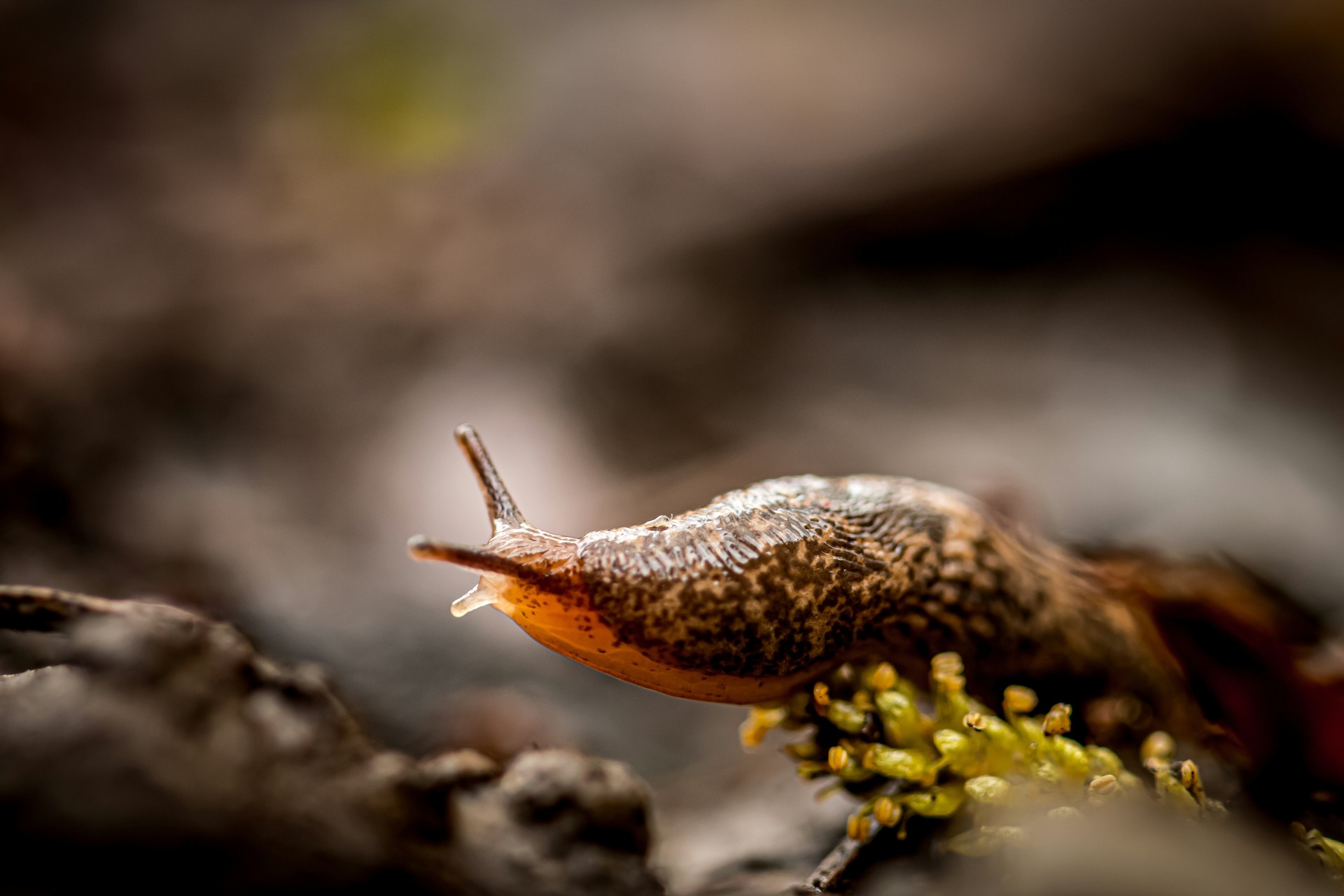
We are reader-supported. When you buy through links on our site, we may earn an affiliate commission.
They’re slimy, devour your plants and multiply like crazy. Slugs are eating machines that leave holes in your green leafy vegetables and behead your flowers before you get to enjoy the blooms. If you’re keen to find the solution to getting rid of slugs permanently once and for all, the answer may just be in your kitchen cabinets.
Why Are Slugs Everywhere?
It’s pretty understandable why slugs are attracted to your garden. It provides the damp environment they need to stay moist. Gardens tend to be shady and humid, especially beneath dense foliage, where these invaders can hide under leaves and avoid predators like birds, toads and snakes. Every time you water your yard, you create the cool, wet conditions where slugs thrive.
Slugs are nocturnal feeders and they rely on moisture to survive. All that organic matter, mulch and lush plant growth in your garden make it an ideal habitat for them. That’s why they often seem to appear overnight, because they do. During the day, they usually hide under mulch, dense vegetation, rocks and pots.
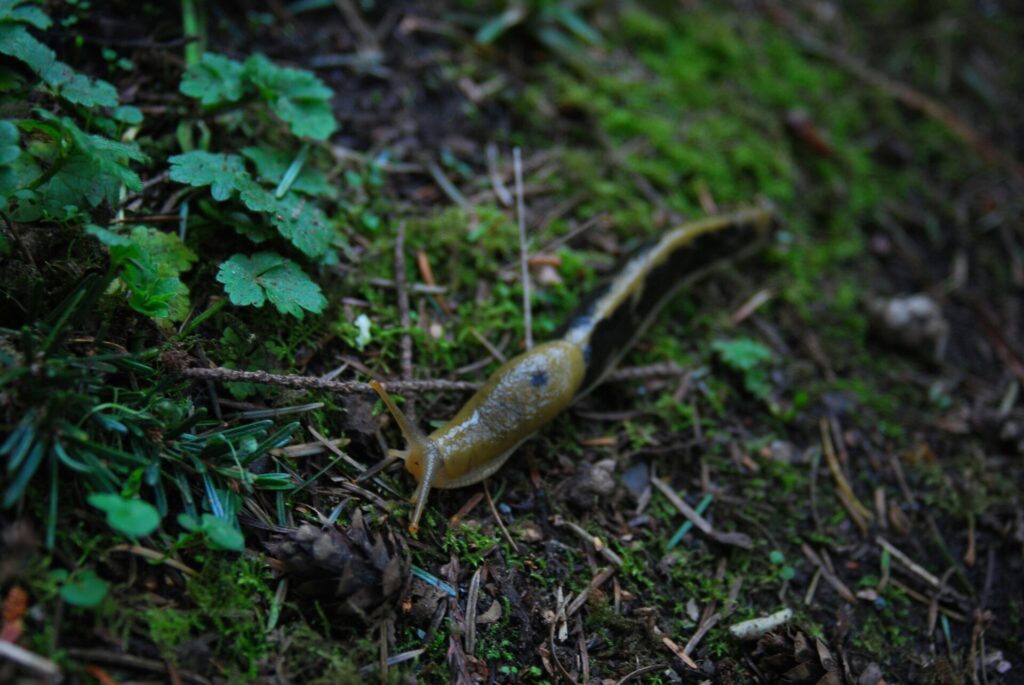
However, slugs can also make their way indoors and become a real nuisance. If you find them inside your home, it could be a sign of excess dampness or that they’re drawn to available food and shelter. They’re known to feed on mold and may signal leaks, condensation, or poor ventilation.
Since they prefer dark, damp areas to avoid the day’s heat, they may take refuge under furniture or inside cracks. Their soft, flexible bodies allow them to squeeze through tiny openings around doors, windows and vents.
However, the real reason there are so many slugs is that they’re hermaphrodites — meaning each one has both male and female reproductive organs and can lay up to 500 eggs in a single lifetime. When conditions aren’t ideal for survival, they can enter a state of aestivation and remain dormant for several months, even without feeding.
Why Vinegar Works Against Slugs
Vinegar is naturally acidic because it contains acetic acid, which dehydrates and kills slugs on contact. The acid disrupts the mucus membrane that keeps its surface moist. Once their protective layer is compromised, they get dehydrated and eventually die.
Vinegar is a better alternative to chemical pesticides because it’s safer for the environment. However, its acidity can also be a drawback — if sprayed directly on plants or soil, it can harm beneficial bacteria due to its antimicrobial properties. That’s why it’s important to avoid splashing the vinegar mixture directly on foliage or into garden beds is important.
Still, vinegar remains one of the most eco-friendly and accessible slug control options. Most kitchens already have a bottle or two in the pantry, making it an easy go-to solution. When used correctly, it’s safe for households with children or pets.
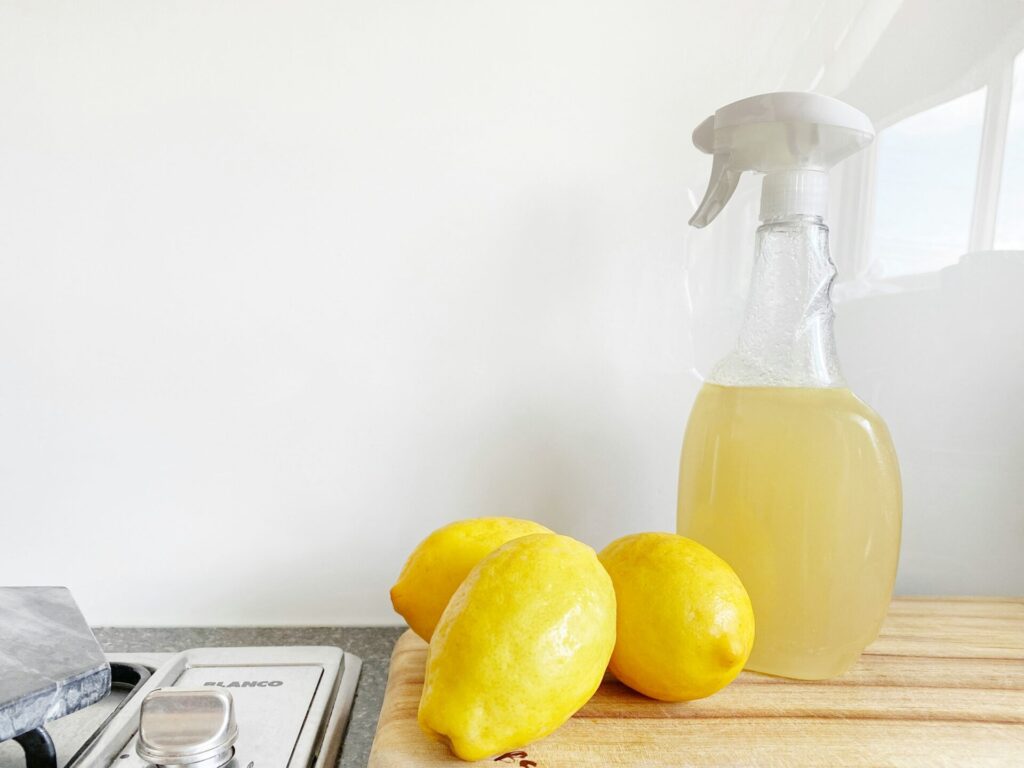
Types of Vinegar to Use Against Slugs
Both white vinegar and apple cider vinegar can be used to control slugs in the garden. The acetic acid in vinegar dehydrates and kills them, but diluting it with water is important to minimize the risk of harming nearby plants.
White vinegar is typically more effective than apple cider vinegar because it usually contains around 5% acidity. It’s also more affordable to produce, as it’s made from fermented grain alcohol, which is inexpensive and widely available.
Apple cider vinegar, on the other hand, is made from fermented apple juice and has a more distinct aroma and flavor. This makes it more costly to produce and while it can still work against slugs, it’s generally less potent and less economical than white vinegar.
How to Use Vinegar to Kill Slugs
Before you get assembling your vinegar slug control, you’ll need the following:
- White vinegar
- Water
- Spray bottle
- Gloves
- Flashlight for night hunting
Follow these steps to make your anti-slug treatment and get rid of them permanently:
- Mix your solution: Dilute the vinegar with water in a spray bottle. A good ratio is one cup of water to half a cup of vinegar. If you want a stronger solution, make it one part water to one part vinegar.
- Pick the right time: Head out when slugs are most active. Since they’re nocturnal, early morning before sunrise or after dusk is ideal. This is when they’re out searching for food.
- Spray directly: Aim for the slugs and mist them directly for an instant kill.
What to Consider Before Spraying
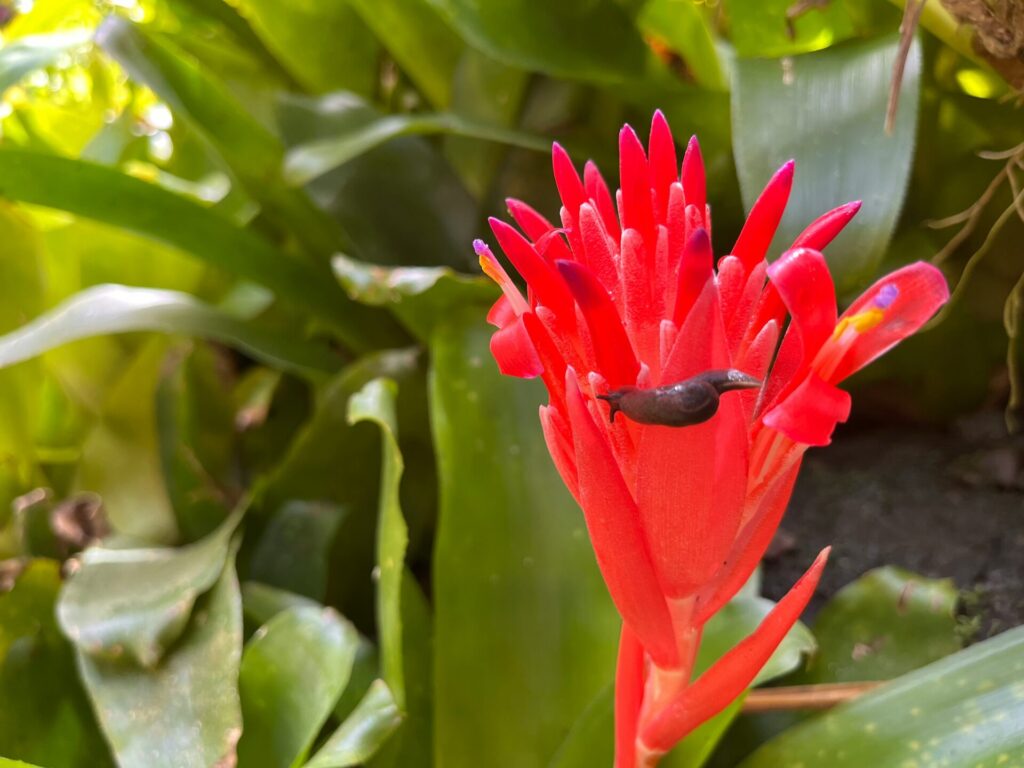
If a slug is clinging to a plant, put on gloves and gently move it to another surface before spraying. Avoid using the vinegar treatment directly on foliage, as the acid can damage leaves. When treating slugs near vegetation, use a piece of cardboard or another barrier to protect surrounding plants.
It’s also best to avoid spraying during bright sunlight or windy conditions. Sunlight combined with acidic solution can damage plant surfaces or nearby furniture, while wind can carry the solution onto unintended areas, such as healthy greenery or outdoor décor.
Never pour vinegar directly into the soil, as it can harm plant roots and beneficial microbes essential for healthy growth.
Lastly, be sure to label your mist bottle clearly and store it in a safe place out of the reach of children and pets when not in use.
How to Prevent Future Slug Infestations
Vinegar can kill the slug on the spot, but if you have an infestation, you might need to make more changes around your garden and home to keep them from returning.
1. Dry Things Out
Slugs thrive in damp, shady environments, so one of the best ways to keep them out of your garden is to keep it dry. Start by fixing leaky faucets, broken spigots or any irrigation issues that leave soil wet for long periods.
Be mindful not to overwater your plants and aim to water early in the day so excess water evaporates by nightfall. Improving soil drainage with compost or raised beds can also help reduce excess moisture.
2. Clean Up Their Hiding Spots
Slugs love to shelter under fallen leaves, wood piles, garden clutter and unused pots. Keeping your outdoor areas tidy reduces the number of dark, damp spaces where they can hide during the day.
3. Create Slug Barriers
Physical barriers make it more difficult for slugs to invade your garden. For example, surround vulnerable plant beds or pots with coffee grounds. Its high levels of caffeine, a natural toxin for slugs, make it an effective molluscicide.
Diatomaceous earth is another natural pesticide that works on slugs, ants, flies and other pests. Simply sprinkle it around the base of your plants and apply a light dusting on the leaves, being careful not to cover them fully and block photosynthesis.
4. Do a Vinegar Perimeter Spray
You can also spritz your diluted natural pesticide around the edges of your garden, patios and foundational gaps to keep slugs at bay. The smell and acidity can deter them from coming back.
Keep Slugs Gone for Good
Using natural slug control methods like vinegar protects your garden while keeping your outdoor space safe for kids, pets and the environment. A combination of targeted spraying, physical barriers and smart prevention strategies can keep your yard free of slimy invaders without relying on harsh chemicals. With a bit of patience and the right approach, you can enjoy a beautiful, slug-free outdoor space you’ll be proud of, naturally and permanently.


